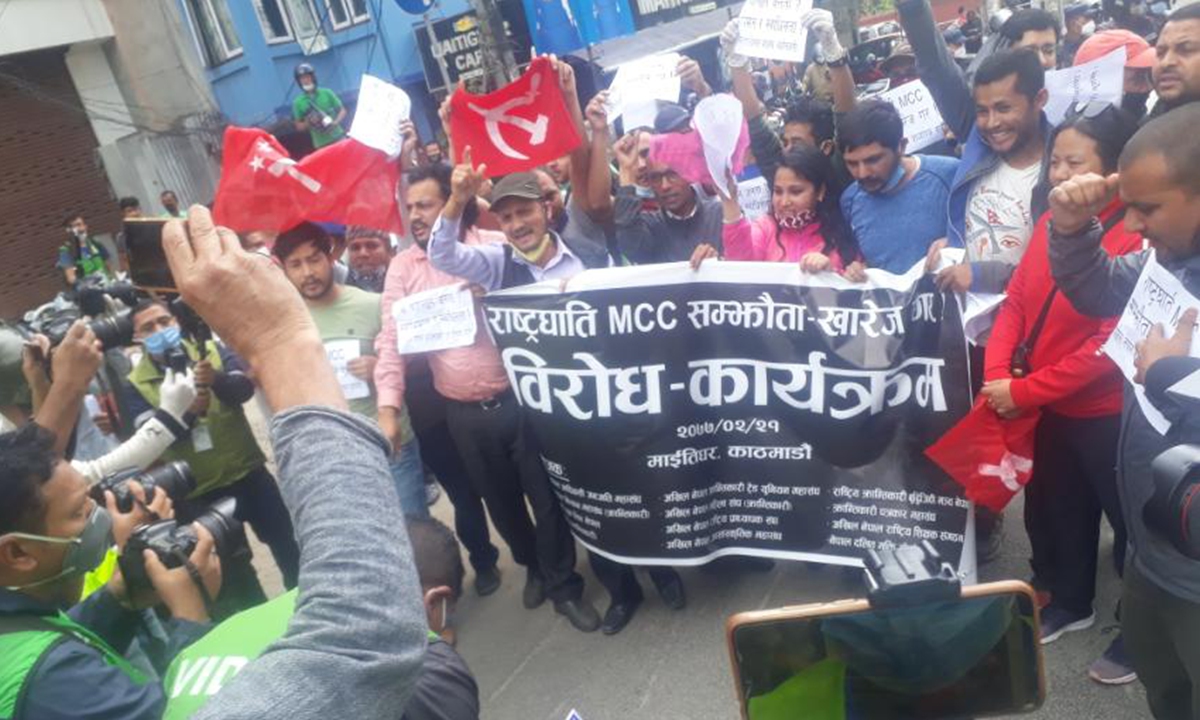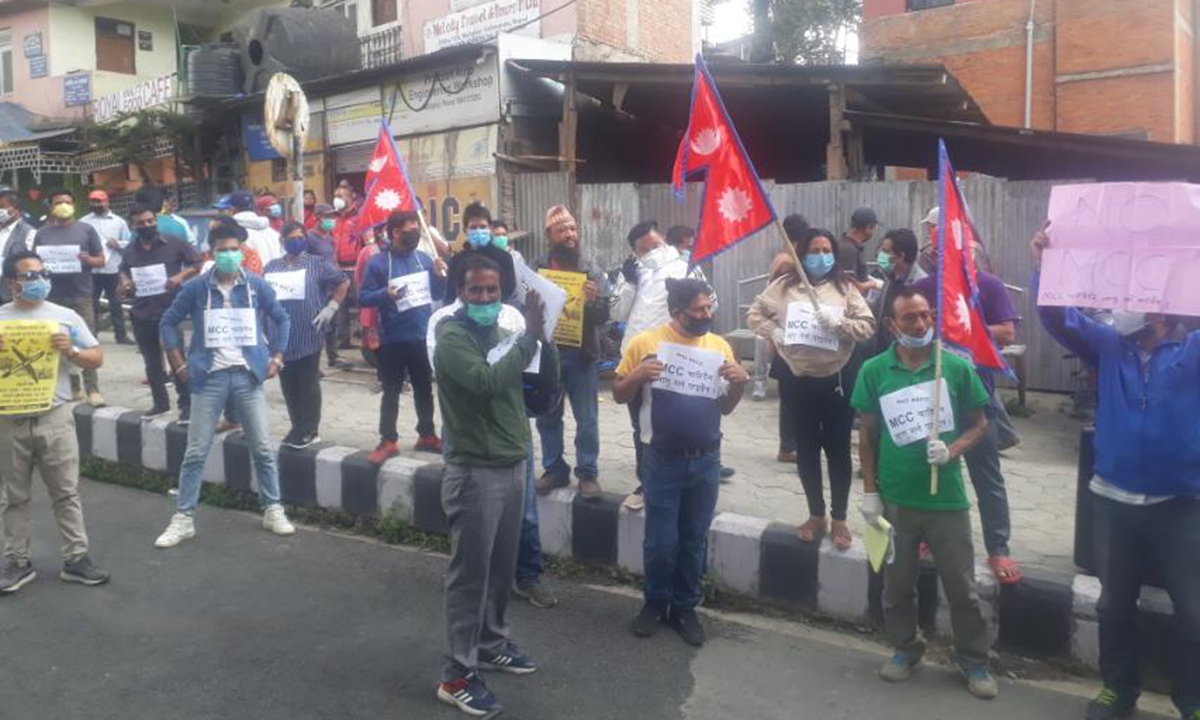Nepalese protesters oppose US-backed project out of national interest concerns
By Hu Yuwei Source:Globaltimes.cn Published: 2020/6/19 2:05:33

Nepalese protest against the MCC compact in Kathmandu on June 3. Photo: Courtesy of a local observer
Demonstrations against a US-led infrastructure project by "Millennium Challenge Corporation (MCC)" broke out in cities in Nepal, with protesters saying the country's national interest and sovereignty will be hurt if the parliament approves the project, which is also widely seen as part of the US' Indo-pacific strategy's (IPS) push to further contain China.
The Global Times learned from some local Nepalese that the demonstration by youth groups and some political parties have been ongoing, despite a lockdown due to coronavirus, ever since the controversial US' grant project was announced.
"There were many protests in Kathmandu against MCC. Even during the lockdown period, people came to the streets and protested saying that the MCC is totally against the sovereignty," Shristi Kafle, a Kathmandu-based journalist, told the Global Times on Thursday. "They feel it threatens the Nepalese power sector, while some provisions in the pact place it above Nepal's law. Many people think endorsement would compromise Nepal's sovereignty and violate the country's non-alignment policy."

Nepalese protest against the MCC compact in Kathmandu on June 3. Photo: Courtesy of a local observer
Many fringe parties have been protesting against the project, and even some members of the ruling Nepal Communist Party are against it, said Kafle.
The project is a $500 million US grant to Nepal to build a cross-border transmission line to facilitate greater electricity trade with India. Many locals say is an attempt to lure Nepal into a US' political trap that serves its IPS that attempts to counter China's rise.
The project is widely regarded as an attempt to counter China's Belt and Road Initiative (BRI) although the US has said the grant is unrelated to the IPS.
China-Nepal cooperation has thrived under BRI projects by enhancing the countries' connectivity between ports, roads, railways, aviation and communications.
In an article written for The Hindu, an India-based English-language daily newspaper, political scientist Vijay Prashad argued that the agenda of the US is basically "to use three large Asian states — Australia, India, and Japan — to isolate China," adding that other than that "there is nothing else to it."
"It is easy for anyone familiar with US' global political strategy to imagine that any aid offered by the US is not usually unconditional," Long Xingchun, director of the Center for Indian Studies at China West Normal University, told the Global Times on Thursday. "Its intention is obvious. The US wants Nepal to be part of its geopolitical interest and strategy in Asia Pacific areas, and to even support the US' Tibetan Policy and Support Act that US House of Representatives passed in January."
"However, China's help with Nepal's development and construction are evident and recognized by the Nepalese, which has prompted them not to deconstruct friendship with China for US political purposes. They were very clear that undermining China's interests would eventually hurt themselves," Long said.
It is highly likely that the US is using infrastructure projects at the Indo-Nepal border to strengthen Nepal's dependence and integration with India, Long said. Many oppose the project because they fear that Nepal could be further swallowed up by India.
"Passing the MCC will be against national interest. We cannot exchange independence for money," Nepal Communist Party (NCP) lawmaker Bhim Rawal was quoted by Nepal's digital newspaper Setopati as saying.
Nepal plans to increase the number of its border outposts along the boundary with India from the existing 121 to 221 in the next year, in a move that comes at a time when border friction between the two countries is high, the newspaper Hindustani reported on Tuesday. Anti-India sentiments are also growing amid rising geopolitical tensions between Nepal and its powerful neighbor India, local Nepalese told the Global Times.
"America wants Indians' support. That's why they are talking about the transmission line to India," Prem Sagar, president of Kathmandu-based Nepal-China Mutual Co-operation Society, told the Global Times on Thursday. "Electricity generated in Nepal is not sufficient for Nepalese. In such situation, to develop the transmission line to India to sell electricity is not a priority and necessity of Nepal at present."
Nine small parties have submitted a memorandum to speaker of the House of Representatives Agni Sapkota demanding the Millennium Challenge Corporation's Nepal Compact not be ratified. They also staged a protest rally in Kathmandu against the MCC over the past months, according to local media reports.
The Secretariat of the NCP earlier halted work on the transmission-line project has it not yet been endorsed by parliament, the national daily newspaper in Nepal Republica reported on May 30.
Posted in: CENTRAL & SOUTH ASIA